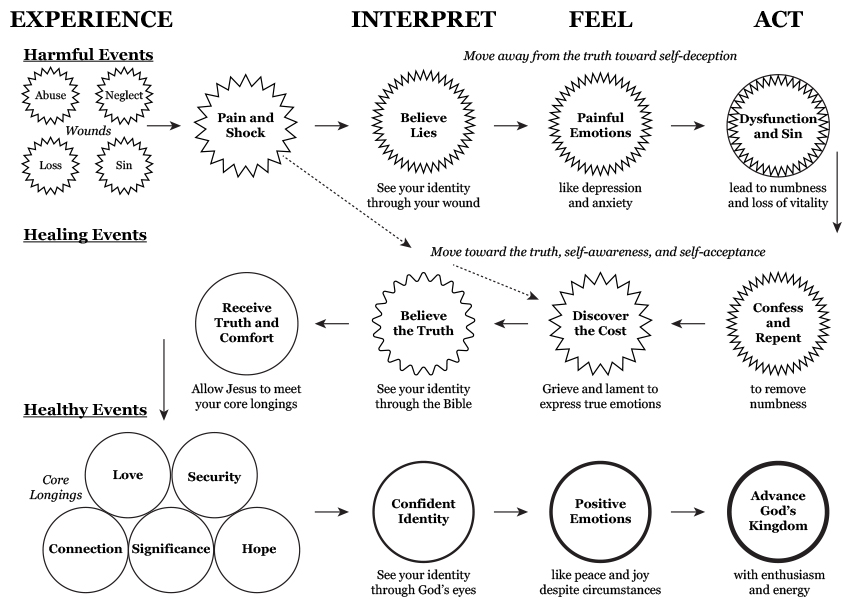Reading time: 3 minutes
Everybody suffers. Some suffering is necessary while
Jesus suffered, but not needlessly. There is a time to stay the course and suffer and there is a time to choose an alternate plan. Here is one way to define a balanced, healthy love:
Love does not suffer needlessly but neither does it run from suffering when running would be a denial of love. A loving person walks away from harm when possible and stays and faces harm when that is the only way to be loving.
Emilie Calabrese
Take a moment and reflect on your current suffering. Can you separate out which suffering is necessary and which is needless?
Needless Suffering is Self-Inflicted
Some suffering is avoidable. We suffer because of evil, its destructive deeds, and sin. Others can cause some of these deeds, but other destructive behaviors are self-inflicted.
Self-inflicted pain can be anything from actually cutting your body to agreeing with psychological put-downs such as, “I’m not enough” or “I’m disgusting.”
It’s easy to want to give up all hope when evil must co-exist with good (our present reality). God made us to desire complete beauty, not distorted beauty. But beauty remains even when part of it is missing. A puzzle with a hopeful message, even though it has some missing pieces, can still inspire hope. Beauty, even with some blemishes, fully retains its identity as God’s inspirational instrument.
Necessary suffering is God-ordained while needless suffering is self-inflicted. Share on XOur world is not without good even though it has some evil mixed in. Despair is needless suffering because it focuses on the bad news as if it were stronger than the good news. Suffering will always be a part of this life, but you don’t need to give it more power than it has on its own.
Needless Suffering is a Form of Learned Helplessness
A mid-life crisis can involve coming face-to-face with the need to grow up. Instead of pressing forward, you decide to run away, refusing the opportunity for growth. Of course, then, the only way to go is backward so your behavior starts to look like it did when you were a child. Except now, if you have more power or money, you can create an even bigger mess.
Self-inflicted pain is really self-rejection, a form of learned helplessness. Share on TwitterLearned helplessness is a cycle of defeat with no apparent escape. When people need to escape, but no escape is allowed, they can learn to accept feeling hopeless. Without hope, a genuine exit will feel no different than an impassible wall.
A bird in a cage learns what is possible and what is impossible. If the bird truly believes, “there is no escape,” then even when the cage door opens, the bird will not leave. The cage may be too comfortable or the outside too foreign.
Likewise, you can feel so negative for so long that you become numb. Then you can reach the point where it is normal to feel numb.
In this way, you can learn to turn off your emotions because they don’t seem to be of any help. But emotions are not the bad guy. Even the circumstances are not a catastrophe. The learned sense of hopelessness is the worst of it all.
Working through difficult experiences and emotions becomes the bridge of escape. But the bridge can appear to be too scary to cross. Instead of crossing the emotional bridge, you remain “land-locked.” The bridge forward is visible but might as well be invisible because the thought of making it across seems unbelieveable.
Needless suffering results from refusing to cross the bridge. Crossing the bridge might also be painful, but it leads to a better place.
Read more about emotions as a bridge to health.
Image by Martin Redlin from Pixabay
Last updated October 2, 2022







